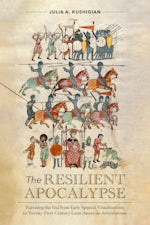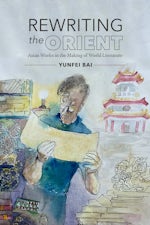Mapping the Landscape, Remapping the Text
Spanish Poetry from Antonio Machado's Campos de Castilla to the First Avant-Garde (1909-1925)
By Renée M. Silverman

256 pp., 6 x 9, 8 figs, notes, bibl., index
-
Paperback ISBN: 978-1-4696-1522-6
Published: August 2014
Buy this Book
This title is not eligible for UNC Press promotional pricing.
Distributed for the University of North Carolina at Chapel Hill Department of Romance Studies
As Silverman argues, both Ultraísmo and Creacionismo employ spatio-temporal simultaneity and the multiperspectivism of abstract visual art idioms such as Cubism to break the bond between people and place that is characteristic of Campos de Castilla. Yet, as Silverman emphasizes, there are some important differences between Ultraísmo and Creacionismo, particularly in Gerardo Diego’s (1896-1987) idiosyncratic brand. This book--the first in English to center on Ultraísmo and Creacionismo--contrasts the way in which Ultraísmo’s leader, Guillermo de Torre (1900-1971), displaces the subject from the terrain of memory, freeing it to cross borders, with how Diego re-roots identity in the textual landscape so as to restore a sense of collectivity to vanguard poetry.
About the Author
Renée M. Silverman is Assistant Professor of Spanish at Florida International University.
For more information about Renée M. Silverman, visit
the
Author
Page.
Reviews
“Silverman delivers a relevant approach to these poets and justifies very clearly the links between their poetic projects, the way they articulated their texts, and the artistic and historical moments in which they lived. Hence, it is a very useful book for college students and researchers interested in the poetry and the aesthetical thought of the time. Moreover, it is a clear example of how geocriticism, structuralism, and formalism may be used in a practical study of poetry and culture.”--Hispania



